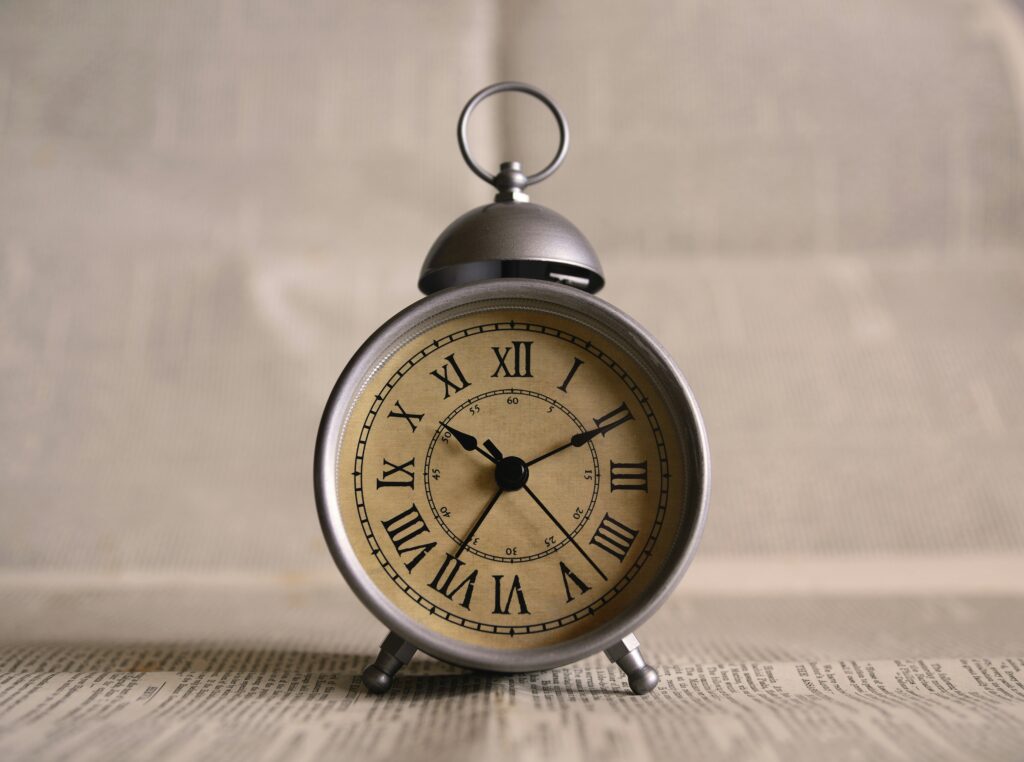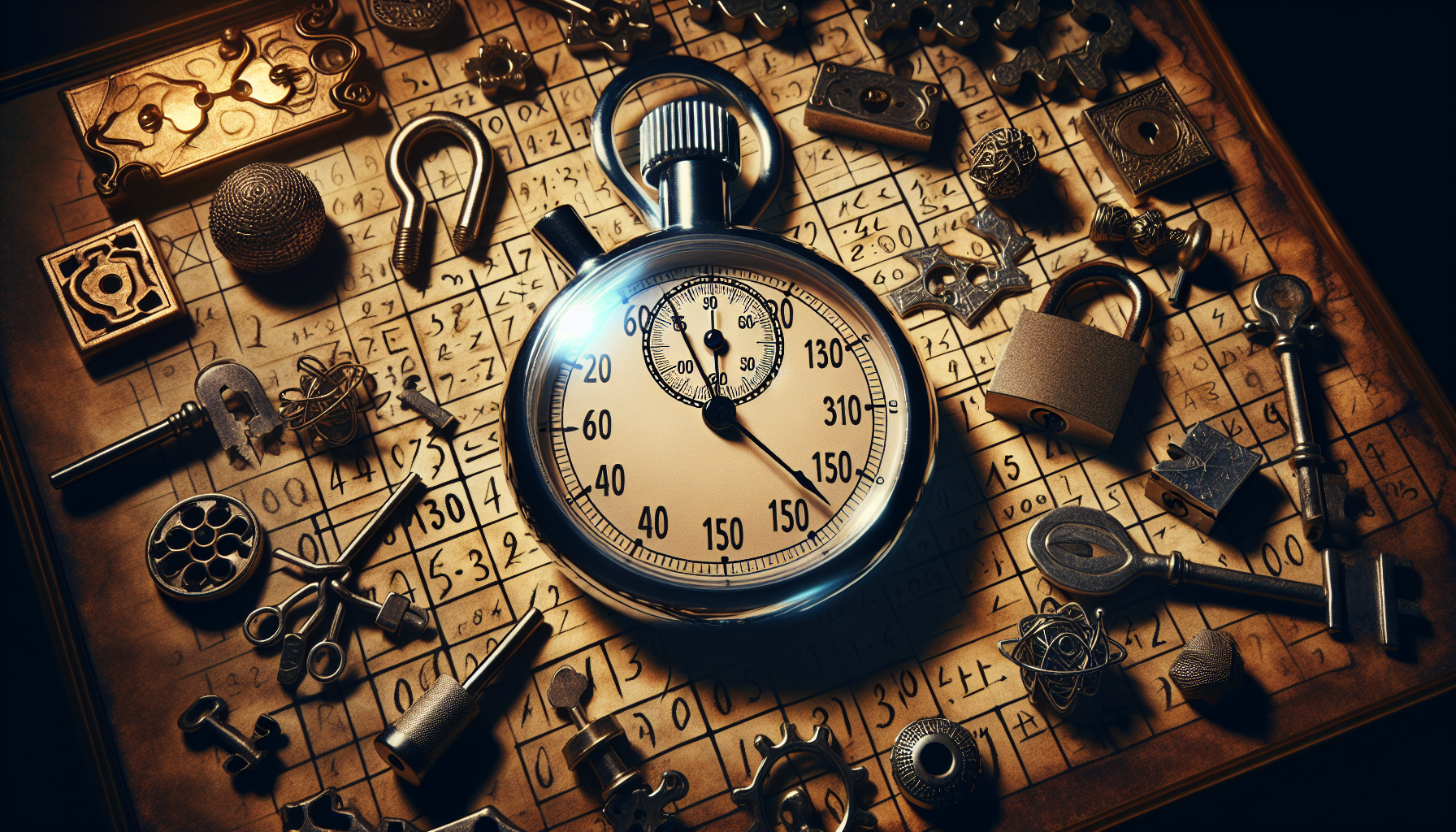So, you’ve decided to take on the challenge of an escape room. The clock is ticking, the clues are waiting, and the pressure is on. But just how much time do you have to crack the code, solve the puzzles, and make your great escape? In this article, we will explore the typical time limits for escape rooms and discuss strategies to help you make the most of your limited minutes. Get ready for an adrenaline-fueled race against the clock, where every second counts and only the smartest and quickest thinkers will emerge victorious.
General Guide to Escape Room Time Limits
Escape rooms have become increasingly popular in recent years, offering an exciting and immersive experience for friends, families, and coworkers. As you enter an escape room, you are transported into a world of puzzles and challenges, where you and your team must work together to solve the mystery and escape before time runs out. In this comprehensive guide, we will explore typical time limits for escape rooms, variations in time limits, factors affecting time limits, strategies to optimize your time, the importance of effective time management, tips for efficient puzzle solving, what happens when you exceed the time limit, room-specific time limit considerations, and concluding thoughts on enjoying the escape room adventure.
Typical Time Limits for Escape Rooms
Escape rooms typically have varying time limits depending on the difficulty level, theme, and design of the room. The most common time limit is 60 minutes, which provides a challenging yet achievable goal for most teams. This duration allows for a comprehensive experience and enough time to solve the puzzles and escape. However, some escape rooms offer shorter time limits of 45 or even 30 minutes for those seeking a more intense and fast-paced challenge.
Variations in Time Limits
Escape room operators understand that every group is unique, and therefore offer variations in time limits to cater to different preferences and skill levels. One of the variations includes adjusting the time limit based on the difficulty level of the room. Rooms labeled as “beginner” may have longer time limits, such as 60 minutes, whereas more advanced rooms may have shorter time limits to increase the challenge.
Another variation in time limits is seen in theme-specific escape rooms. These rooms are designed with a specific theme in mind, such as a haunted house or a spy mission. The time limit in these rooms often aligns with the storyline and atmosphere, contributing to a more immersive experience.
Lastly, escape rooms may offer customizable time limits, allowing groups to select their preferred duration within a given range. This option accommodates groups with varying experience levels or time constraints, ensuring an enjoyable experience for all.
Factors Affecting Time Limits
Several factors are taken into consideration when determining the time limits for escape rooms. One key factor is the number of puzzles and challenges present within the room. A room with a higher number of complex puzzles may require more time for teams to solve and escape successfully.
The size of your team also affects the time limit. Smaller teams may find it challenging to solve all the puzzles within the given time, while larger teams may have an advantage in terms of dividing and conquering tasks.
Hints and clues play a crucial role in escaping within the time limit. Some rooms offer limited hints or require teams to solve additional puzzles to gain access to hints. Depending on how effectively hints are utilized, they can either save time or waste time if misinterpreted.
The experience and skill level of the participants also impact the time limit. Experienced players may have a better understanding of puzzle-solving strategies, allowing them to solve puzzles faster and escape within a shorter duration. On the other hand, novice players may require more time to grasp the mechanics of the room and work through the challenges.
Finally, the game design and complexity of the room itself contribute to the time limit. Some rooms are intentionally designed to be more intricate and challenging, requiring additional time for teams to navigate and solve the puzzles.
Strategies to Optimize Your Time
To make the most of the limited time you have in an escape room, employing certain strategies can greatly enhance your chances of success. Here are some key strategies to consider:
Divide and conquer
Dividing the tasks among team members is a highly effective approach. Instead of everyone focusing on a single puzzle, assign different puzzles to different team members. This way, you can work simultaneously, saving a significant amount of time and increasing efficiency.
Effective communication
Communication is essential when working together as a team. Ensure everyone has a clear understanding of their assigned tasks and encourage open and frequent communication. Sharing information, ideas, and progress can contribute to a faster and more synchronized puzzle-solving process.
Assigning roles and responsibilities
Assigning specific roles and responsibilities to each team member helps to streamline the escape room experience. For example, designate someone as the puzzle solver, someone else as the note-taker, and another as the timekeeper. This division of labor allows everyone to focus on their respective tasks, maximizing productivity.
Prioritizing tasks
Understandably, not all puzzles are created equal in terms of difficulty and significance. By prioritizing the tasks, you can tackle the most critical puzzles first, ensuring progress and reducing the risk of getting stuck.
Time-checking techniques
Keep track of time at regular intervals to avoid running out of time without realizing it. Establish and follow a time-checking technique that works for your team, whether it’s setting timers or frequently checking the room’s clock. This way, you can make necessary adjustments and allocate time accordingly.

Importance of Effective Time Management
Effective time management is crucial when it comes to escape rooms and can greatly impact your overall experience. Here’s why:
Increasing chances of escape
With a limited time frame, efficient time management increases the likelihood of solving all the puzzles and escaping before time runs out. By utilizing the strategies mentioned earlier, you can optimize your time and maximize your chances of achieving the ultimate goal.
Enhancing the overall experience
Escape rooms are designed to provide an exhilarating and immersive experience. Efficient time management allows you to fully enjoy the room’s puzzles, challenges, and storyline without feeling rushed or stressed. It fosters a sense of accomplishment and satisfaction as you navigate through the experience with ease and confidence.
Preventing frustration and stress
Poor time management can lead to frustration and stress within the team. Rushing through puzzles or getting stuck on a single challenge can cause tension and hinder progress. By effectively managing your time, you can maintain a positive atmosphere, foster teamwork, and keep the experience enjoyable for all participants.
Tips for Efficient Puzzle Solving
Solving puzzles efficiently is key to successfully escaping an escape room within the given time limit. Here are some tips to enhance your puzzle-solving skills:
Focus on teamwork
Collaboration and teamwork are paramount in an escape room. Encourage everyone to contribute their ideas and perspectives to the puzzle-solving process. Utilize each team member’s strengths and work together to find solutions.
Think outside the box
Escape rooms often require creative thinking and non-linear problem-solving. Don’t limit yourself to conventional approaches; instead, think outside the box and consider different possibilities and perspectives. Be open to unconventional solutions and approaches.
Avoid overthinking
While it’s essential to think critically, overthinking can waste valuable time. Trust your instincts and initial observations. Sometimes the simplest solution is the correct one, so avoid overcomplicating puzzles and challenges.
Utilize hints wisely
If hints are available, use them strategically. Don’t be afraid to ask for help when you’re stuck, but also ensure that you’re not relying too heavily on hints. Strike a balance between utilizing hints for guidance and independently solving puzzles to maintain the challenge.
Keep track of time
Constantly monitor the time remaining and adjust your approach accordingly. If you’re spending too much time on a particular puzzle with no progress, consider moving on to a different puzzle and returning later. By keeping time in mind, you can allocate your efforts more effectively.

Escaping Beyond the Time Limit
Despite your best efforts, there may be instances when you are unable to escape within the allotted time. Here’s what to expect:
Consequences of exceeding time
Exceeding the time limit typically results in ‘failure’ in terms of escaping the room. The game master will enter the room and debrief your team on any remaining unsolved puzzles and challenges. While it may be disappointing not to escape, it’s important to remember that the overall experience and fun of the escape room adventure are not solely dependent on escaping within the time limit.
Partial successes
In some cases, even though you may not escape within the time limit, you may have made significant progress and solved several puzzles. While it may not be considered a complete success, partial successes can still be celebrated and acknowledged.
Post-game insights
After exceeding the time limit, the game master may provide insights into puzzles that were left unsolved or offer further explanations and solutions. These insights can help you understand the mechanics of the room and improve your future escape room experiences.
Implications on rankings and records
For competitive teams or escape room enthusiasts, the time limit carries additional significance. Exceeding the time limit may impact your rankings and records, especially in rooms where escape time is closely monitored and recorded. However, it’s essential to focus on the enjoyment of the experience rather than focusing solely on rankings and records.
Room-Specific Time Limit Considerations
Different escape rooms may have unique elements that affect the time management aspects. Consider the following room-specific time limit considerations:
Maze-like rooms
Rooms designed like mazes pose additional challenges in terms of time management. Navigating through complex layouts and finding clues within a limited time can be particularly daunting. It’s crucial to have a clear understanding of the room’s layout and assign tasks accordingly to efficiently cover all areas.
Multiple rooms and stages
Some escape rooms consist of multiple rooms or stages, each with its own set of puzzles and challenges. In these cases, effective time management becomes even more essential. Allocate time for each stage, ensuring that sufficient progress is made in each room to advance to the next.
Time extensions and bonus challenges
Some escape rooms offer the opportunity to extend the time limit or earn bonus time through the successful completion of certain challenges or puzzles. Consider these factors when planning your strategy and allocate time accordingly to maximize your chances of achieving these extensions or bonuses.

Conclusion
Escape rooms provide an immersive and thrilling experience that challenges your problem-solving skills, teamwork, and time management abilities. While time limits vary, they are an integral part of the escape room adventure. Keep in mind that your personal experience may vary based on factors such as difficulty level, team dynamics, and skill level. Experiment with different strategies, communicate effectively, divide tasks, and prioritize effectively to optimize your time. Remember to enjoy the process, think creatively, and celebrate any successes, whether within or beyond the time limit. So gather your team, embrace the challenge, and embark on an unforgettable escape room adventure!
